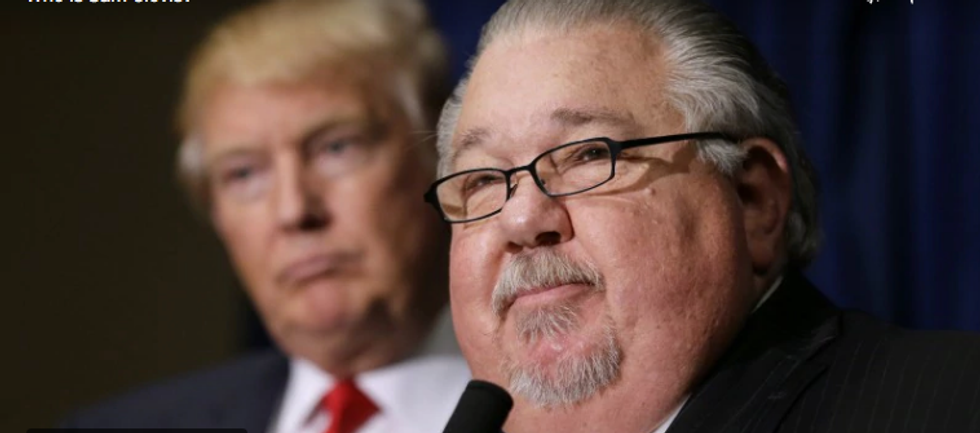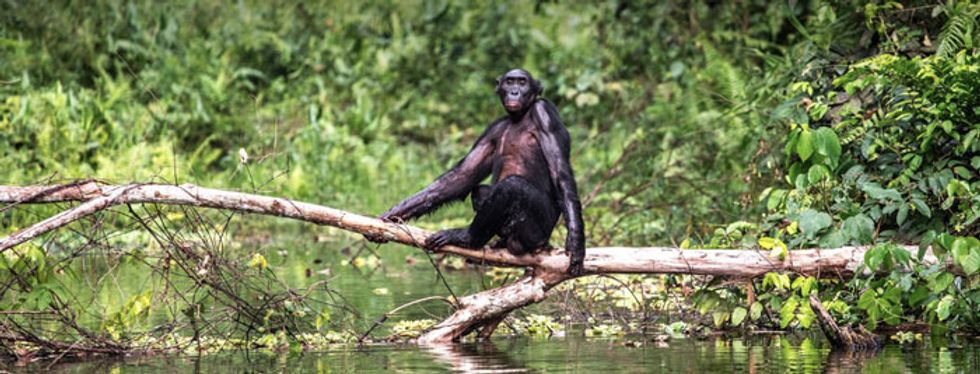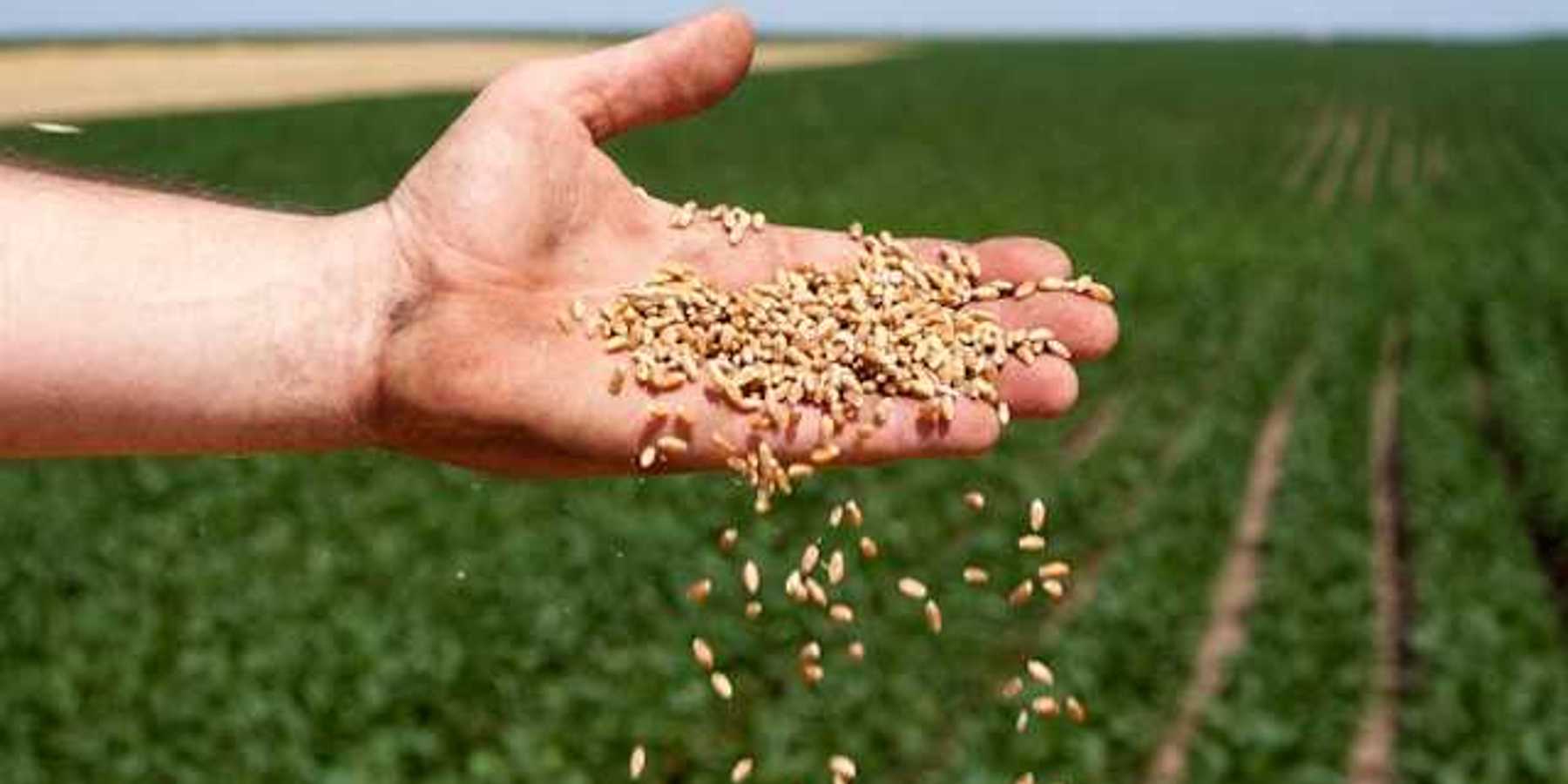The Weekend Reader: Apes, floods and child lead levels
The news on our environment, health and climate that changed the world for the week of Oct. 30 to Nov. 5.
First, we hear you: Many have asked for a return to our old newsletter format, with its list of headlines and links.
We're working to get that to you, as well as options for a weekly digest and a wider array of thematic newsletters.
Our new system has tremendous power, but it also has some limits. Bear with us as we figure this out. With your help, we'll get this right. Feedback is ALWAYS welcome: feedback@ehn.org.
The week in Trump

Sam Clovis, the non-scientist named to be USDA's top scientist, found himself mired in the middle of the Papadopolous-a-palooza.
He informed President Trump on Wednesday he would no longer seek the post, as the Washington Post reported, "given the controversy surrounding the fact that he was one of the top officials on the Trump campaign who was aware of efforts by foreign policy adviser George Papadopoulos to broker a relationship between the campaign and Russian officials.
Trump agriculture nominee Sam Clovis confirms he has no hard-science credentials, withdraws over ties to Russia probe (Washington Post)
Donald Trump's unqualified USDA chief scientist withdraws, cites 'political climate' (Salon)
The U.S. Global Change Research Program – sort of a domestic IPCC – released its latest assessment of climate research, and the result was unambiguous: Humans are driving climate change.
The real surprise was how forcefully major media outlets contrasted those findings with Trump and his cabinet's stance on the issue.
Associated Press' Seth Borenstein: "It is the latest example of collisions between Trump's environmental policies and the facts presented by his government's experts."
U.S. scientists contract Trump's climate claims (Associated Press)
Related: Emily Atkin, writing in the New Republic, warns that you cannot end the war on coal without starting a war on public health.
The new coal crisis (New Republic)
The week's top commentary

Five op-eds to keep you engaged:
- In Grand Staircase-Escalante, coal and fossils lie side by side. What could be lost as monument opponents push for mining. (Rebecca Worby, High Country News)
- What do Jellyfish teach us about climate change? A new study shows that the biological effects of two ecosystem changes can be greater than their individual impacts (John Abraham, The Guardian)
- Pruitt is turning his back on transparency at the EPA. The agency should be a fishbowl, not a black box — or it will crumble. (William D. Ruckelshaus, Washington Post)
- Reject outrageous fee hike for national parks. There are better ways to fund national parks than an exorbitant fee increase proposed by the Trump administration. (Editorial board of the Seattle Times)
- As communities rebuild after disaster, we must keep nature in mind. To minimize future harm, protecting nature and the services it provides should be at the top of our post-disaster to-do list. (Anita van Breda, Ensia)
Top news for Sunday, Nov. 5

- Smuggled, beaten and drugged: The illicit global ape trade. The New York Times tracked international ape smugglers from Congolese rain forests to the back streets of Bangkok. Here is what unfolded. (New York Times)
- Judge considers wild rice protection: Some say sulfate rules could triple Duluth sewage bills, force closure of mills. How do you protect a culturally important food source from a common pollutant stemming from sewage effluent, mine discharges and other industrial processes? (Grand Forks Herald)
- Chasing a killer. U.S. and Congolese scientists are tracking a virus. At a time when a deadly disease can cross the globe, they need to understand the mysterious monkeypox. (Washington Post)
- Jerry Brown's holy war on Donald Trump. At the Vatican, the California governor rips the president's climate policies as a 'lie within a lie.' (Politico)
- A broke, and broken, flood insurance program. Now, an unusual coalition of insurers, environmentalists and fiscal conservatives is seeking major changes in the federal plan as a deadline approaches. (New York Times)
Trending on kid's health
Trending news story this week at the journal Environmental Health Perspectives:
What happens next for children with elevated blood lead?
Reporter Charles Schmidt connected with Cincinnati Children's Hospital Medical Center pediatrician and medical director Nicholas Newman to chart the future for the half million children identified in the U.S. with elevated blood lead levels.
"When there's a strong family structure to support our efforts, I find the outcomes are better."













